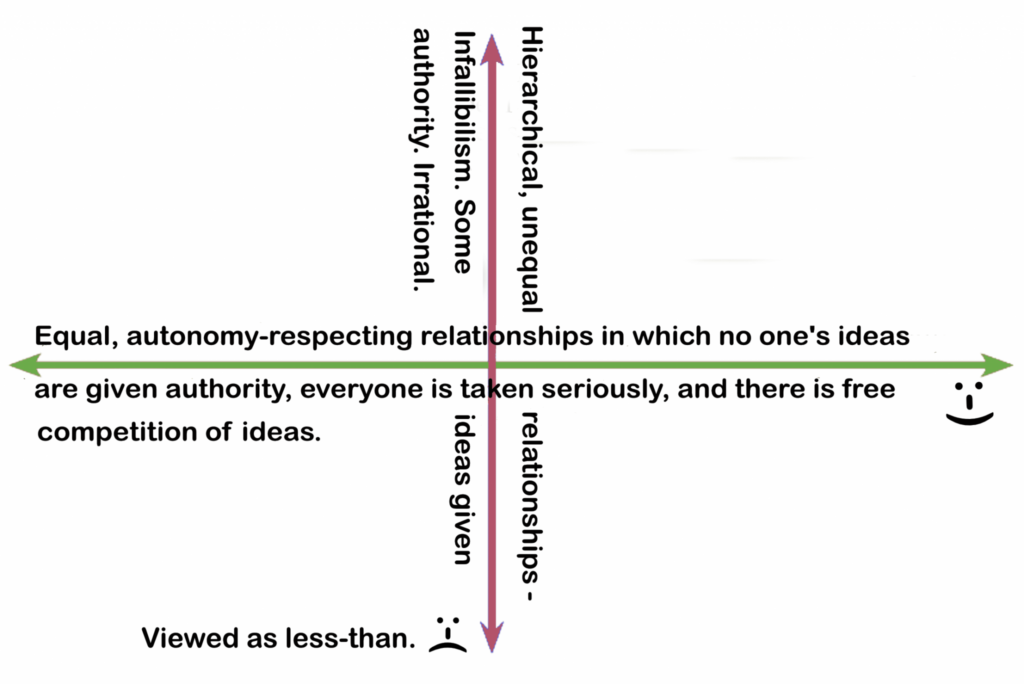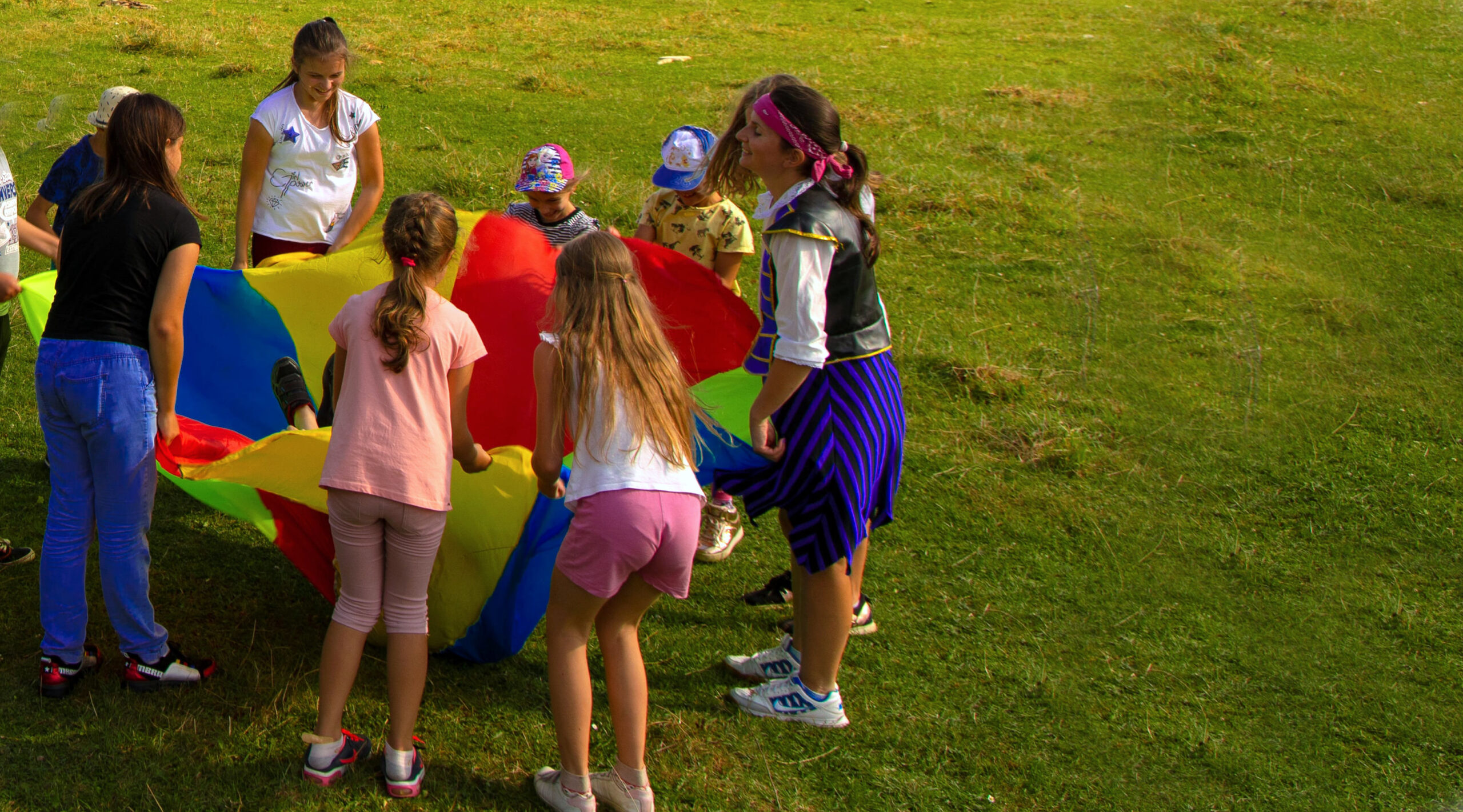“Children are no less creative and rational than adults, whether or not they yet have the explicit language in which to express themselves.”
– Sarah Fitz-Claridge
“Equal relationships with our children?! How are parents and children are equals?!”
I do not mean that
- parents and children are equally mature
- parents and children are equally knowledgeable
- parents and children are equally able to function in the world without support, protection, and so on
- parents and children have equal obligations to each other
- children are just like adults
- parents should expect their children to behave like adults
What I do mean:
- Parents and children are equally human, equal persons
- Children have no less creativity and rationality (ability to learn, create new knowledge) than adults. If anything, young children especially learn faster than adults.
- When I say that Taking Children Seriously means relating to our children as equals, I mean equals as opposed to us having authority. Equal as opposed to us paternalistically controlling our children. Equal humans. Equally persons. Each person is a moral agent.
- It is really about taking ideas seriously and not impeding the growth of knowledge. Everyone’s ideas equally on the table—horizontal, equal relationships—versus paternalistic, vertical, top-down, hierarchical, authoritarian relationships in which the parent is deemed to be an authority. Equals in terms of how it is rational to treat ideas. Ideas can either compete equally, freely, all available ideas equally on the table for consideration no matter where the idea came from or who had the idea (rational—nothing interfering with the growth of knowledge), or there can be authority—some sources of ideas being accorded special status as authorities, their ideas being deemed to be authoritative, not open to question, which effectively means that some of the available ideas are not allowed on the table for consideration.

In Taking Children Seriously families, parents’ and children’s ideas are all equally on the table, competing freely in the knowledge-creating decision-making institution, as opposed to what happens in paternalistic parenting, which is that the parents’ ideas are given special authority. Not open to criticism.
The growth of knowledge—any and all kinds of human progress—is hampered, prevented or sabotaged by authority—by some sources of ideas (parents, say) being deemed to be authorities. Progress flows when all the ideas anyone and everyone has can compete freely in the knowledge-creating process—when all the ideas are on the table, as opposed to some ideas not being allowed on the table because they come from children, say.
“What do you mean by “compete freely”? If you mean parents and children get an equal chance to argue their case, obviously the parents will be able to out-argue the children, so that seems unfair to the kids.”
“It seems like if you say “equal relationships” that that is putting too much responsibility on the kids and that that is a way of the parents getting their own way at the expense of the kids. ?”
No, when I talk about all the available ideas being on the table and competing freely and equally, that is not about the parent who is the better debater winning an argument against the child. Whilst that might count as the “free competition of ideas” in a debate at the Oxford Union, say, that is a slightly different thing.
In the Taking Children Seriously context, what I mean by all the available ideas being on the table, none of them being not allowed to be considered, all of them freely competing, is that all the ideas, including the child’s ideas, are on the table. That actually includes ideas the child may not have the words to state explicitly too.
Given parents’ greater knowledge and it being all too easy to overpower our children, to try to ensure that all the available ideas are on the table, we parents have to make a special effort to be sensitive to unspoken or inexplicit ideas that our child may have.
If we were to take the view that no idea that a child has not articulated and argued clearly and logically is admissible, that would be us deeming ourselves to be the authority, and denying the child’s ideas access to the table. It would be not allowing the free, equal competition of all the ideas. Instead of all the ideas freely competing, it would be saying that only the ideas meeting our criteria will be allowed on the table for consideration. That is not all the ideas competing freely as equals, that would be us picking and choosing which ideas we ourselves consider acceptable for the table.
See also:
- “What ages is Taking Children Seriously most powerful for, or how does its value change with age? When is it almost too late?”
- Where is the choice for the child?
- “What if…?” questions
Sarah Fitz-Claridge, 2022, Taking Children Seriously FAQ: ‘“Equal relationships with our children?! How are parents and children are equals?!”’, https://takingchildrenseriously.com/equal-relationships-with-our-children-how-are-parents-and-children-are-equals/
